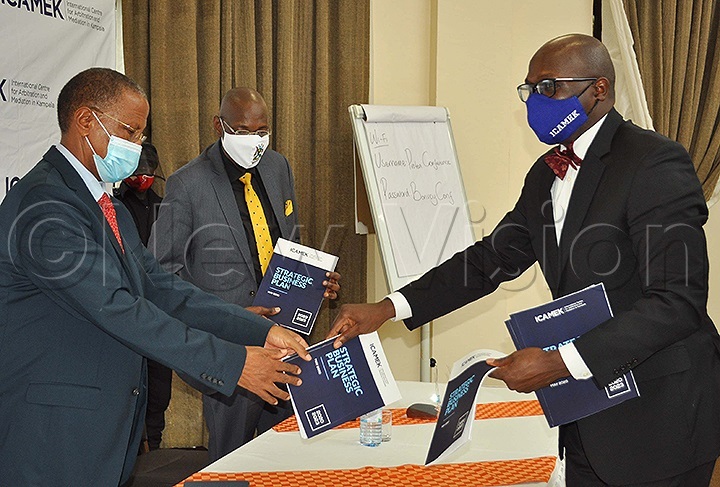Sh5trillion stuck in Uganda courts, killing businesses
A 2018 banking report noted that a commercial dispute takes at least four years to be resolved without considering appeals.
The high failure rate of small and medium enterprises (SMEs) should be partly blamed on locked-up capital in the Uganda judicial system, the Private Sector Foundation Uganda (PSFU) has said.
Currently, the court system is encumbered by high costs, long delays, aggravation and loss of privacy. A 2018 banking report noted that a commercial dispute takes at least four years to be resolved without considering appeals.
"One of the measures of cost drivers in doing business in this country is failure to access justice through the courts. Over 90% of our private sector that are dying to get access to the judicial system are SMEs," Gideon Badagawa, executive director at PSFU, said.
"When you tell a manufacturer or a farmer to go through the judicial process for justice, they will not go there because they will spend three years in the courts. Someone would rather lose sh300m and do other things," Badagawa said.
The PSFU director was speaking during the launch of the International Centre for Arbitration and Mediation (ICAMEK) 2020/2023 strategic plan in Kampala.
Experts say the current environment has partly made investors hesitant to bring business to the economy that does not have a robust capacity to resolve commercial disputes through alternative dispute resolution (ADR) mechanism.

Launched in September last year, the strategic plan is part of ICAMEK tools aimed at guiding the establishment of a Private Sector led ADR framework and development of policies to enable the delivery of relevant and distinctive ADR services responsive to the evolving needs of all stakeholders.
Arbitration, a form of ADR, is a technique for the resolution of disputes outside the court system. In arbitration, the parties agree to have their dispute heard by one or more arbitrators and agree to be bound by their decision.
Capital locked up
Francis Gimara, the International Centre for Arbitration and Mediation (ICAMEK's) board member said that ADR should be an attractive option to be exhausted by disputing parties as the court system faces a backlog challenge.
"The realisation is that globally, it is becoming a norm that you explore the non-litigious of resolving disputes. World over in the resolution of commercial disputes, there is a growing trend through arbitration and mediation," Gimara said.
"We are challenged by the fact that sh5 trillion is locked up in the formal justice system as a result of ongoing disputes. For a businessman, a matter being locked up for four years until it is resolved by the Supreme court is quite a supreme," he added.
In August this year, the Commercial Division of the High Court announced that it had completed cases valued at sh2.7 trillion in 2020.
The court disclosed that the pending cases currently are valued at sh4.2 trillion, an amount bigger than the total budget allocation to energy and agriculture sectors in the financial year 2020/2021.
Uganda Bankers Association executive director Wilbrod Owor said that the association's interest in ICAMEK is to resolve outstanding disputes and unlock the capital locked up the court system.
The ICAMEK establishment at least 22 cases have been registered and four awards.
According to Deputy Attorney General Jackson Kafuzi, the courts have recognized these impediments and are embracing initiatives by sector players such as the use of new technologies in the court processes.
"There is an urgent need for the judiciary to embrace the new innovations aimed at enhancing case management. Contemporary methods of dispute resolutions such as plea bargaining, mediation and arbitration have all been important to support litigation as a process of settling dispute," he said.
Badagawa said, for ICAMEK to address the sticky issues in the judicial system, there is a need for the business community to be sensitised about its importance.